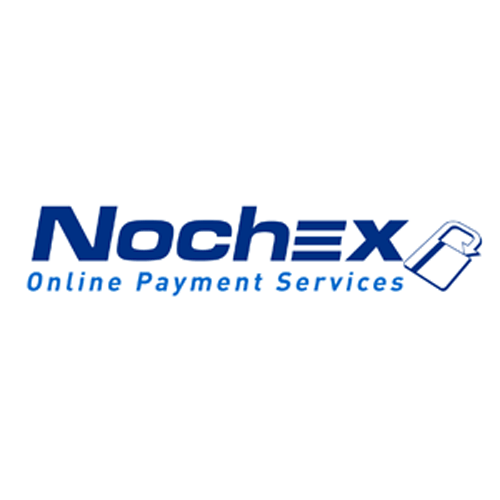
NoChex Review: The Best Alternative Merchant Account?
After carving out a space in the merchant account market, could Nochex be what your business
Get a quote in seconds with our simple form
A merchant account allows businesses to take electronic payments. This means all payments are not made with cash, and all payments made with credit and debit cards, as well as with other methods like Apple Pay and Google Pay, are included.
While they both hold money, a merchant account is not a bank account. Instead, you’re better off thinking of them as a halfway house. A place where money is held while checks are carried out to ensure a transaction can take place.
Without a merchant account, you will struggle to take electronic payments. This makes them absolutely essential to every modern business whether online or in a shop.
As we’ve established, you’re not realistically going to grow your business without a merchant account, but how do they work? Well, while there are other steps involved (like payment gateways and payment processors), it can be boiled down to a simple agreement. One between your business and what’s called an acquiring bank.
The acquiring bank provides you with your merchant account. It’s them with whom you will agree to your terms. This will include the length of the contract, the type of merchant account you need, and how much you pay in fees.
Once all of this has been agreed, your acquiring bank will set you up with a merchant account and you can start accepting card payments. When you’re set up with your merchant account, you can take digital payments in three different ways:
Usually taken with a card machine that may be supplied by your merchant account provider.
To do this, you will require a ‘virtual terminal’, which is a secure webpage where you enter your customer’s payment information.
If you want to take online payments then you need a ‘payment gateway’. These are those checkout pages you fill out when making an online purchase.
When somebody tries to buy something with a credit or debit card, it sets off a chain of processes that ensure the transaction can happen. This process involves multiple moving parts but happens very quickly.
First, the business (that’s you in this case) communicates with the acquiring bank. The acquiring bank then communicates with the bank that issued the customer their card and, after the card issuer authenticates the transaction, the payment goes through a payment gateway and a payment processor before landing in your merchant account. After this, the money is transferred from your merchant account into your bank account. It seems a complicated process, but it all happens in a few minutes.
There are, naturally, several fees you need to pay each time you make a transaction with a card machine or other digital payment method. As you’ve just read, there are multiple moving parts and, with each part, there comes a fee. The payment gateway you use will charge you a percentage-based fee, as will the acquiring bank you choose. As well as this, your acquiring bank will usually also charge a monthly fee for using their services.
The fees themselves range from less than 1% to 5% or more, depending on the type of merchant account you’re using, your credit history and other factors. Although some rates are capped by law, others may differ between providers, so it pays to shop around to find the best merchant account provider for you.
While we’ve touched on it here, we’ve got a whole page dedicated to the different fees associated with merchant accounts. Check out our full guide on merchant account fees to find out all you need to know.
You’ll be an expert in no time…
Not all merchant accounts are the same. What works for one business may not work for yours, so the type of merchant account you need depends on your circumstances. Whichever type of merchant account you choose, it will fall into one of the three following categories:
An aggregated merchant account is arranged by what’s called a payment facilitator. This is essentially a company that does a lot of the work for you. If you use one, you won’t need to set up an account yourself. Instead, you’ll use a merchant account owned and controlled by the payment facilitator.
This is obviously ideal for smaller businesses as it takes away a lot of the hassle and streamlines the process of taking digital payments. What’s more, an aggregated merchant account can often work out cheaper for small businesses. Since your payment facilitator pools in your takings with other businesses’ takings, there’s a higher volume of payments being made, which usually means a lower per-transaction rate.
If you have a poor credit history or operate in a volatile industry, this could be your only option for a merchant account for your business. As you can tell from their name, high-risk merchant accounts are offered to businesses that the acquiring bank considers riskier.
The presumption of risk can be due to several reasons, including a typically higher number of chargebacks, historical financial instability in your industry, a high incidence of fraud, or a bad credit rating. These accounts typically charge higher fees due to the increased likelihood of financial volatility within your business. If you operate in any of the industries below, you could be classed as high-risk:
While high-risk merchant accounts typically come with higher fees, they can also be beneficial to the businesses that use them.
If it’s not already been made clear by this article, your business needs a merchant account to be successful. Without one, your business is unable to take payments digitally which, in the modern world, is a dangerous limitation for your business.
With more and more consumers preferring to use card payments, and fewer people carrying cash than at any point in history, card payments are where your business’s future is.
That’s why now is as good a time as any to get a merchant account for your business. The process of opening one is something many businesses do every year but, if you’re unfamiliar with the process, it can be confusing. No need to worry though, just read on to find out how to open a merchant account.
Merchant accounts all work in similar ways but the one you have needs to suit you and your business. Remember, different merchant accounts suit different kinds of business needs.
Retail merchant accounts, for example, are more suited to physical shops where sales are done face-to-face. These sales will happen with a physical card machine, which is directly linked to your merchant account. Internet merchant accounts, meanwhile operate solely online and only deal with online payments.
Only you know the best type of merchant account for your business, so you’ll have to take the time to decide which type of account best suits you. Once you’ve done this, you can move on to the next step.
This is probably the most time-consuming part of the process, but also the most important. You need to research and compare merchant account providers. While all merchant accounts do the same thing, it’s still important to not go for the first one you see.
There are plenty of things to consider, not least the transaction fees and admin costs that your merchant account may come with. While researching is usually the most time-consuming part of securing your merchant account, we can make the process quicker, easier, and cheaper – more on that further down.
After the most time-consuming and important part, comes the most quick and simple part: applying for your merchant account.
Assuming you have already gathered all the necessary documents you need to open your account and you’ve followed the steps above, this part is easy. If you do your research properly, the best merchant account provider for you will be an obvious choice.
The application process itself is usually simple. It involves filling out an online form with your relevant information and providing the documents they require. After that, you can start using your new merchant account.
Please select the industry that you trade within. This information allows us to tailor your quote.
Although the process of how a merchant account works is fairly straightforward, there are a few things that you will want to consider when choosing your provider and if they’re the best choice for your business.
Fees
This will be how much you will pay your merchant account provider to use their service. There are several types of fees you will have to pay, all of which need to be considered.
Contract Length
Some people like having longer contracts so they don’t have to worry about constantly renewing them, others prefer shorter-term deals so they can switch providers on a semi-regular basis.
Customer Service
If there are technical issues, how quickly will they be resolved and will you be compensated for any downtime? You may have thought you had found your ideal provider, but if their customer service is terrible it may be worth finding someone else.
Hidden Fees
Common hidden fees include things such as set-up & exit fees or terminal rental costs that may not be stated in the initial chats with providers.
Ease Of Use
You want things to be as easy as possible and don’t want to waste your time trying to figure out an overly complicated card reader. Sometimes you just need an app on your phone and a card reader and you’re ready to start taking payments.
Commercial Experts is here to help you find the merchant account you’re looking for. We’ve got partners within the financial industry, and they’re ready to offer you a new merchant account for your business.
What’s more, the whole process couldn’t be easier. All you have to do is answer a few questions about your business, and you’ll receive a selection of quotes from some of the country’s leading merchant account providers.
So, if you want to compare merchant accounts now and get started with card payments (and why wouldn’t you?) click the button below to get started. You could be only minutes away from taking the next step in modernising your business.
The amount you pay for your merchant account will depend on several factors, such as your industry, the length of time you’ve been trading for, the type of merchant account you have, and the acquiring bank you choose.
While it’s frustrating to not know right from the get-go how much a merchant account is likely to cost, you can get fully informed about the kinds of costs you can expect to pay by reading our guide on merchant account fees.
Probably, yes. Unless you have a brick-and-mortar business and are happy to only accept cash payments for the foreseeable future, you need a merchant account. While there are ways to accept card payments without one, the alternatives can often end up costing you more.
Whichever type of merchant account you choose, it will fall into one of the three following categories:
The categories are suited to different kinds of businesses. The one your business suits best depends on your specific circumstances.

After carving out a space in the merchant account market, could Nochex be what your business

They’re two major players in the mobile card machine game, but which is better? They’re two

We explore the hardware, software, and pricing structures of two of the UK’s most popular merchant




Commercialexperts.com helps savvy UK businesses to save time and money by comparing a wide range of essential products and services.
© TFLI 2024 All rights reserved. Licenced by the Information Commissioners Office, (Registration Number Z3585914) Registered in the UK, number 08424810. Registered Office Address: First Floor, Beechwood Court, Springwood Way, Tytherington Business Park, Macclesfield, Cheshire. SK10 2XG.